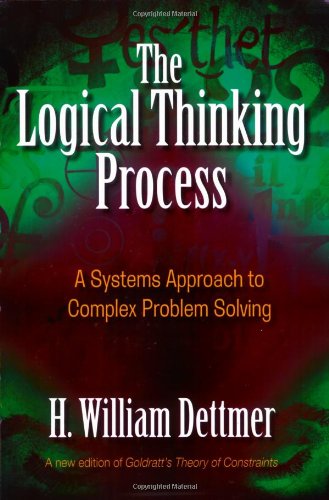Which are the best complex systems leadership theory available in 2019?
We spent many hours on research to finding complex systems leadership theory, reading product features, product specifications for this guide. For those of you who wish to the best complex systems leadership theory, you should not miss this article. complex systems leadership theory coming in a variety of types but also different price range. The following is the top 6 complex systems leadership theory by our suggestions:
Best complex systems leadership theory
1. Complex Systems Leadership Theory: New Perspectives from Complexity Science on Social and Organizational Effectiveness (Exploring Organizational Complexity)
Feature
Used Book in Good ConditionDescription
This book, written by leading experts in the field, is intended for thoughtful leaders, advisors, and academics who want to better understand cutting edge thinking and the latest research on leadership in the complex, highly interconnected organization of today. Unlike most books on the subject, it does not purport to provide simple answers to difficult questions. Rather, it seeks to provide new insights and tools that have only recently become apparent through advances in complexity science-like, for example, the intricate dynamics of emergent leadership as simulated through agent-based modeling (ABM). Complex Systems Leadership Theory is a powerful beginning to what promises to be a deeper, more thoughtful investigation of how and why organizations succeed and what leaders can do to make a difference.2. Organization Design: Simplifying complex systems
Description
A well-designed organization is an effective organization. Decisions about organization design determine the shape and form of the organization not only the reporting structure and authority relations, but also the number and size of sub-units and the interfaces between the sub-units. Indirectly, such decisions affect individual productivity as well as the organizations ability to attain strategic goals.Organization Design equips the reader with advanced tools and frameworks, based on both research and practical experience, for understanding and re-designing organizations. Particular emphasis is placed on how one can improve effectiveness by simplifying complex roles, processes, and structures.
Readerswill find thorough conceptual explanations combined withexamples from different industries. This updated second edition includes a new chapter about traditional organizational forms, and is complemented by a companion website.
This textbook will be essential reading for students, scholars, and practitioners.
3. Business Dynamics: Systems Thinking and Modeling for a Complex World with CD-ROM
Description
Todays leading authority on the subject of this text is the author, MIT Standish Professor of Management and Director of the System Dynamics Group, John D. Sterman. Stermans objective is to explain, in a true textbook format, what system dynamics is, and how it can be successfully applied to solve business and organizational problems. System dynamics is both a currently utilized approach to organizational problem solving at the professional level, and a field of study in business, engineering, and social and physical sciences.4. Understanding Leadership in Complex Systems: A Praxeological Perspective (Understanding Complex Systems)
Description
This work proposes that Carl Mengers Subjective Theory of Value (STV), and its subsequent elaboration by Ludwig von Mises as Praxeology, provides a useful alternative to more common methods in the study of action and social phenomena, and more specifically, to leadership in complex social systems. Rather than being based on rationality assumptions and algorithmic predictability, the STV emphasizes transient subjectivity shaped by a complex world of lacking information, mistakes, disequilibrium, uncertainty and attempted error correction that defy mathematization and exact prediction. As such, it is a framework to make sense of human action systems in terms of subjective understanding, learning, and uncertainty, rather than quantitative predictability. Accordingly, the aim of this work is to explain the STV as a general theory of action and to demonstrate its capability in developing adequate qualitative theory and to elaborate on some of the major topics that its implications raise with regard to leadership. The power of the method can be seen in that its procedure naturally branches out to facilitate an understanding of a broad selection of processes and may provide the basis for a universal theory of leadership.5. The Logical Thinking Process: A Systems Approach to Complex Problem Solving
Feature
Used Book in Good ConditionDescription
A major rewrite of Dettmer's classic Goldratt's Theory of Constraints, this new edition presents a whole new approach to building and applying logic trees. The logical thinking process referred to in the title is nothing less than a broadly applicable, systems-level approach to policy analysis. Dettmer has streamlined the process of constructing the logic trees while simultaneously ensuring that the results are more logically sound and closer representations of reality than ever before. He explains an easier, more logically sound way to integrate Current Reality Trees with Evaporating Clouds. His new version of the thinking process "retires" the Transition Tree in favor of the marriage of a more detailed Prerequisite Tree and critical chain project management. This book contains new examples of logic trees from a variety of real-world applications. Most of the diagrams and illustrations are new and improved. Explanations and procedures for constructing the logic trees are considerably simplified. Completely new to this edition is a unique graphical software application - Transformation Logic Trees, designed primarily to create thinking process logic trees and only secondarily for other flowcharting uses. Provided on the accompanying CD-ROM is a full-function, unrestricted copy of version 1.0 for new and experienced users of the thinking process alike to use in building their logic trees. Appendix J in the book provides more information on how to install and use the software.6. Complex Systems and Evolutionary Perspectives of Organisations: The Application of Complexity Theory to Organisations









Recent Comments